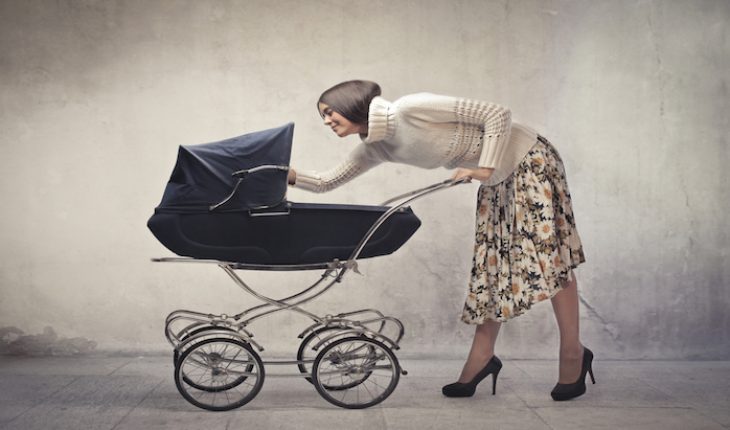Mums are choosing to have their babies later in life. As a GP, I see a growing number of women in their 30s and 40s who are expecting their first child, or hoping to have a child of their own. Many are professional women who have put their careers first but are now ready to start a family. Of course, having a baby is a big issue whether you are 21 or 41, but older mums do have special needs. For a start, conception is more difficult, so pregnancy may be harder to achieve. Antenatal problems tend to be more complicated and foetal abnormalities are more common. After a successful delivery, and older mum may find that it takes her longer to recover, and adjust to the new reality both physically and mentally. This is some of the advice that I tell expectant mums who are registered with my practice, starting with the ‘B’s.
BIRTHPLAN
The really good news is that your wishes play an important role in the type of birth that you have. If you want a homebirth, a hospital birth, even a water birth, most health authorities will do their best to ensure that you get one.
Don’t forget that you should start planning early. It is likely that you will have the chance to discuss your feelings with your community midwife, but it is also important to write down things you feel strongly about. It is possible that the midwife who delivers your baby is not the same one who has done your antenatal care. If she has a written birth plan to refer to, she is much more likely to follow your wishes as you are puffing and panting between contractions!
Things to think about for your birthplan include:
•What kind of pain relief you may want. An epidural normally has to be one earlier in labour, so doctors will need to know in advance.
•You might like to consider who you would like present. Your husband or partner, mother or yoga teacher!
•The position you want to give birth in. You don’t need to give birth lying on your back anymore. Supported squatting or kneeling allows gravity to aid delivery.
•Where you want the baby put when it is born. On your chest? Into the arms of your partner?
•Who will cut the cord. Some women specify important religious rituals than must be performed soon after birth, and others put down the type of music they want. Don’t be afraid to be specific. It will make everything run much more smoothly if you write down your exact needs.
BACK PAIN
During pregnancy the ligaments in the body relax. This includes the ligaments in the pelvis and back and makes them very easy to strain. This, coupled with the extra weight of the baby leads to back pain and symphysis pubis ( the joint at the front of the pelvis) pain. It is important to always maintain a good posture and avoid heavy lifting. Exercises such as pilates pregnancy exercises or those from a physiotherapist can help relieve and prevent back pain.
BLEEDING IN EARLY PREGNANCY
In the first trimester of pregnancy bleeding can occur in a quarter of pregnancies. Although light bleeding can be completely normal, it may indicate a miscarriage or an ectopic pregnancy. A miscarriage is more likely with advancing maternal age, smoking and alcohol consumption. It is advisable to consult your doctor and to do so urgently if you have pain (particularly one sided) since an ectopic is a life-threatening condition.
BRAXTON-HICKS CONTRACTIONS
During pregnancy the uterus contracts from time to time. The contractions are not so strong or regular as labour contractions and they are painless. I often think of the uterus ‘practising’ for labour.
BLOOD PRESSURE
During pregnancy the blood pressure is monitored regularly. It drops during the midtrimester which can make you feel faint but after this returns to normal. After 20 weeks of pregnancy a rising blood pressure can be a sign of pre-eclampsia – a condition dangerous for mother and baby which requires specialist input. Symptoms are often absent with pre-eclampsia but patients may complain of a headache, blurred vision and vomiting. If your blood pressure does start rising you would be monitored more closely than usual and treatment started if necessary. Sometimes it is necessary to deliver the baby early
- Bs for later babies - 24th July 2016
- Teen health - 24th May 2016








If doctors were honest they would be advising women and men in their twenties that if they want to have children they should do so now. Old eggs, old sperm, old wombs cannot produce as healthy a human being as young ones. It is delusional to think age does not matter.